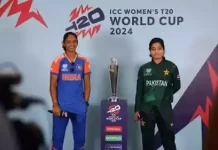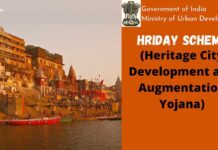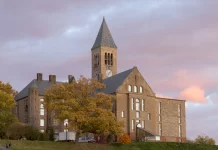Clearly the year 2019 will be the year of political churn for the country, Elections and court verdicts will keep Indian Muslims on its toes
New Delhi: siyasat. net
The 2019 elections will be a test case for the line taken by political parties that have traditionally been identified as secular.
After the recent drubbing in state legislative assembly elections in Rajasthan, Madhya Pradesh (MP) and Chhattisgarh, the ruling Bharatiya Janata Party’s (BJP) national council congregates in the country’s capital on January 11 and 12 for the last marathon sitting before the Lok Sabha (Lower House of Parliament) election.
The party members will look to dissipate the cloud hanging over critical issues of national interest. Clearly, the year 2019 will be the year of political churn for the country with widening opportunities for people in the education and Information Technology (IT) sectors.
Besides, increasing awareness due to the spread of mobile internet and advancements in the technology sector are likely to expand the scope of equality in choices and decision making for people of various strata.
A look at some of the issues that are likely to be in focus in 2019:
1) General election (likely dates April-May)
General elections to constitute the 17th Lok Sabha (body of elected Parliamentarians) are due to be held in April to May 2019. It is likely that unless Prime Minister Narendra Modi calls them earlier, the elections will begin on April 8, 2019.
The state legislative assembly elections in the states of Andhra Pradesh, Arunachal Pradesh, Haryana, Odisha, Sikkim and Jammu and Kashmir (J & K) will be tentatively held simultaneously with the general election.
In the run-up to the next general election, various organisations will soon start carrying out opinion polls to gauge voting intentions in the country.
The year 2019 will test the ruling BJP’s political expansion into the east and whether it can win enough seats from eastern states to compensate the recent losses in Chhattisgarh, MP and Rajasthan. As part of their strategy to woo the electorate, both BJP and Congress are likely to introduce their extensive electoral plans which include deployment of leaders and cadre in key constituencies across the country to gather feedback on what issues have resonance among the people.
2) Hearing on Ayodhya case (January onwards)
The apex Supreme Court (SC) will decide the course of hearings in the Ram temple-Babri Masjid title dispute in the first week of January.
This effectively means that the verdict is likely to be out just before the 2019 Lok Sabha elections.
The top court is hearing 14 petitions challenging a 2010 Allahabad High Court (HC) decision that trifurcated the disputed site in Uttar Pradesh’s (UP) Ayodhya town between Hindus, Muslims and the representatives of Hindu deity Ram Lalla.
Hindus believe the 16th century Babri mosque was built by Mughal emperor Babar in place of a temple dedicated to deity Ram, whose birthplace is considered to be at the exact site.
In 1992, the Babri mosque was demolished by a mob of thousands of Hindus, triggering a cycle of violence and riots across the country.
Excavations by the Archaeological Survey of India (ASI) have been heavily used as evidence by Hindu religious outfits to support their claim that the predating structure was a massive Hindu religious building.
3) Hearing on Article 35A (January onwards)
A case on the validity of Article 35A of the Constitution, according special rights and privileges to the citizens of Jammu and Kashmir (J & K), is likely to be heard by the top court in the first week of January.
Article 35A, which was incorporated in the Constitution by a 1954 Presidential Order, not only accords special rights and privileges to the citizens of J & K but also denies property rights to women who marry those from outside the state.
The provision, which leads to such women from the state forfeiting their right over property, also applies to their heirs.
A writ petition filed by non governmental organisation (NGO) ‘We the Citizens’ challenges the validity of Article 35A. It argues that four representatives from Kashmir were part of the constituent assembly involved in the drafting of the Constitution and the state of J & K was never accorded any special status in the Constitution.
In January, the SC will hear the petition which states that Article 35A is against the “very spirit of oneness of India” as it creates a “class within a class of Indian citizens”.
4) Kumbh Mela (January-March)
Commencing on January 15 on the auspicious day of ‘Makar Sankranti,’ the Kumbh Mela (Hindu religious festival) will last for 30 to 45 days on the banks of river Ganges in Haridwar and Prayagraj.
The Uttar Pradesh (UP) government is leaving no stone unturned to provide security to devotees visiting the holy city of Prayagraj (earlier Allahabad) during one of the largest gatherings of devotees in the world — the Kumbh Mela.
The administration is extra cautious this time as the land area of the Kumbh Mela has doubled this time. The mela will be spread over an area of 45km from the earlier 20km radius.
Also, this is the first time that devotees will be arriving in the city by land, air and water routes. Considering all this, an Integrated Control Command and Centre will be established in the Kumbh area for the first time.
Just a few days ago, the Kumbh Mela Police along with National Disaster Management Authority (NDMA), Sashastra Seema Bal (SSB), Central Reserve Police Force (CRPF) and National Disaster Response Force (NDRF) will perform a joint mock drill to check their preparedness.
5) 70th anniversary of Indian Constitution (November)
Constitution Day, also known as National Law Day, is celebrated in India on November 26 every year in order to commemorate the adoption of the Constitution of India. Historically, though the constituent assembly adopted the Constitution on November 26, 1949, it came into effect on January 26, 1950.
In 2019, November 26 is chosen by the government to spread the importance of the Constitution and to spread thoughts and ideas of the father of Indian Constitution Dr B.R. Ambedkar.
The Ministry of External Affairs (MEA) is likely to direct all its embassies to translate the Constitution into the local language of that nation and distribute it to various academies, libraries and faculties of Indology.
The work of translating the Constitution into Arabic has already been completed.


































